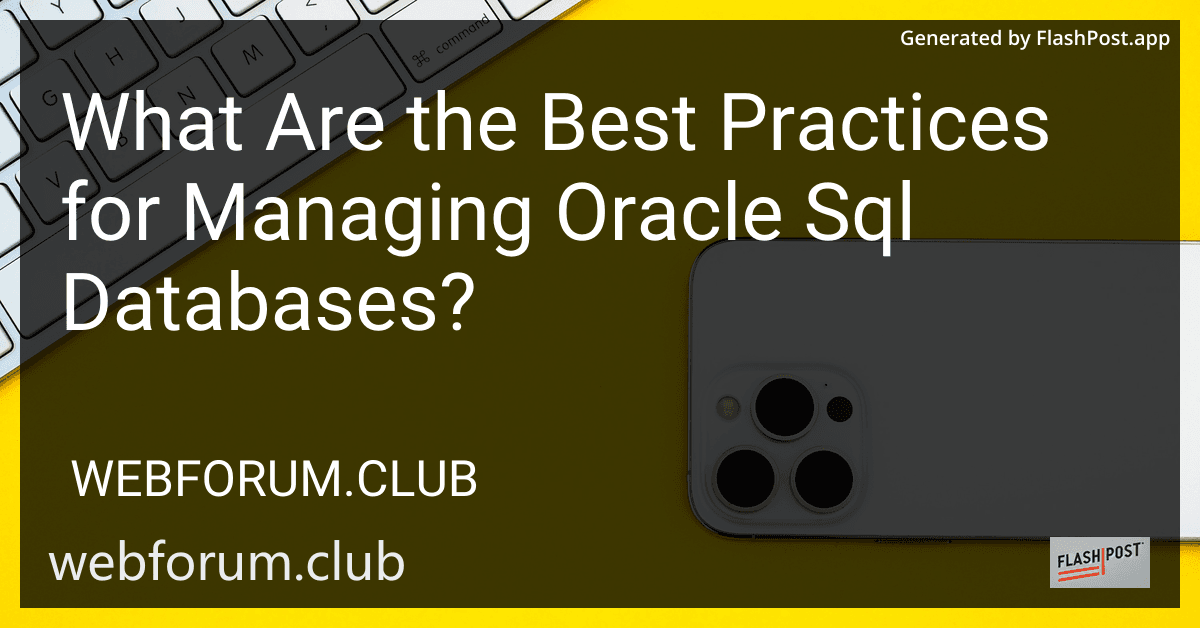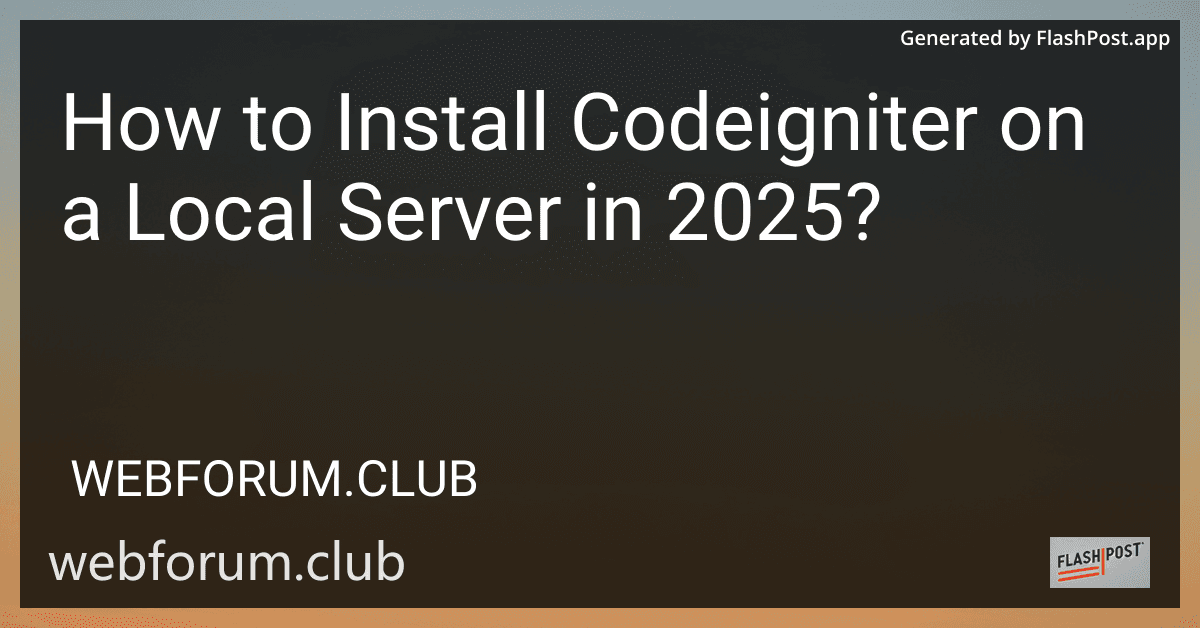Posts (page 4)
-
 3 min readHandling errors effectively in jQuery AJAX calls is crucial for providing a smooth user experience on your web applications in 2025. AJAX calls, being asynchronous by nature, may result in errors due to network issues, server-side problems, or incorrect request configurations. This guide provides a comprehensive overview of the best practices for handling errors in jQuery AJAX calls, ensuring your web applications remain resilient and user-friendly.
3 min readHandling errors effectively in jQuery AJAX calls is crucial for providing a smooth user experience on your web applications in 2025. AJAX calls, being asynchronous by nature, may result in errors due to network issues, server-side problems, or incorrect request configurations. This guide provides a comprehensive overview of the best practices for handling errors in jQuery AJAX calls, ensuring your web applications remain resilient and user-friendly.
-
 3 min readInvesting is an essential avenue for building wealth, but it is not without its complexities. One of the fundamental concepts every investor must grasp is the balance between risk and return. This dynamic plays a crucial role in aligning your investment portfolio with your financial goals. In this article, we will delve into the strategies for effectively assessing risk versus return in your investment choices.
3 min readInvesting is an essential avenue for building wealth, but it is not without its complexities. One of the fundamental concepts every investor must grasp is the balance between risk and return. This dynamic plays a crucial role in aligning your investment portfolio with your financial goals. In this article, we will delve into the strategies for effectively assessing risk versus return in your investment choices.
-
 3 min readIntegrating Vue.js with a Django backend can create a powerful full-stack web application that harnesses the strengths of both technologies. Vue.js serves as a lightweight and performant front-end framework, while Django offers a robust and scalable back-end solution. This article will guide you through the steps necessary to seamlessly integrate Vue.js with Django, ensuring a delightful experience for your users. Why Integrate Vue.js with Django.
3 min readIntegrating Vue.js with a Django backend can create a powerful full-stack web application that harnesses the strengths of both technologies. Vue.js serves as a lightweight and performant front-end framework, while Django offers a robust and scalable back-end solution. This article will guide you through the steps necessary to seamlessly integrate Vue.js with Django, ensuring a delightful experience for your users. Why Integrate Vue.js with Django.
-
 3 min readWeb application security is a critical consideration in modern software development, given the increasing number of threats and vulnerabilities present on the internet. Symfony, a popular PHP framework, stands out for its strong security measures that help developers build robust and secure web applications. In this article, we will explore how the Symfony framework ensures security in web applications, highlighting its features and strategies.
3 min readWeb application security is a critical consideration in modern software development, given the increasing number of threats and vulnerabilities present on the internet. Symfony, a popular PHP framework, stands out for its strong security measures that help developers build robust and secure web applications. In this article, we will explore how the Symfony framework ensures security in web applications, highlighting its features and strategies.
-
 3 min readManaging Oracle SQL databases efficiently is critical for ensuring optimal performance and reliability. In this article, we explore the best practices for managing Oracle SQL databases, helping you maintain a robust and secure database environment. Understanding Oracle SQL Before diving into best practices, it’s crucial to understand the basics of Oracle SQL. If you are new to the concepts, consider exploring how to get page number from item name in Oracle for a deeper understanding.
3 min readManaging Oracle SQL databases efficiently is critical for ensuring optimal performance and reliability. In this article, we explore the best practices for managing Oracle SQL databases, helping you maintain a robust and secure database environment. Understanding Oracle SQL Before diving into best practices, it’s crucial to understand the basics of Oracle SQL. If you are new to the concepts, consider exploring how to get page number from item name in Oracle for a deeper understanding.
-
 3 min readIn the age of smartphones, mobile optimization has become a crucial component of SEO performance. With an increasing number of users accessing websites via mobile devices, search engines like Google prioritize mobile-friendly sites. Understanding how mobile optimization affects SEO performance is essential for any website owner looking to improve their search engine rankings and user engagement. What is Mobile Optimization.
3 min readIn the age of smartphones, mobile optimization has become a crucial component of SEO performance. With an increasing number of users accessing websites via mobile devices, search engines like Google prioritize mobile-friendly sites. Understanding how mobile optimization affects SEO performance is essential for any website owner looking to improve their search engine rankings and user engagement. What is Mobile Optimization.
-
 3 min readIn today’s data-driven world, ensuring high availability for your databases is crucial. PostgreSQL, a powerful and open-source relational database system, provides efficient ways to set up replication for high availability. This guide will walk you through the process of configuring replication in PostgreSQL, ensuring your data remains accessible and your systems resilient.
3 min readIn today’s data-driven world, ensuring high availability for your databases is crucial. PostgreSQL, a powerful and open-source relational database system, provides efficient ways to set up replication for high availability. This guide will walk you through the process of configuring replication in PostgreSQL, ensuring your data remains accessible and your systems resilient.
-
 2 min readCreating SEO-friendly URLs is essential for the visibility of your website. In CodeIgniter, you can achieve this by removing the index.php from the URL and configuring your site accordingly. In this article, we will guide you through enabling and configuring SEO-friendly URLs in CodeIgniter. Why SEO-Friendly URLs? SEO-friendly URLs are crucial because they help search engines index your content more effectively.
2 min readCreating SEO-friendly URLs is essential for the visibility of your website. In CodeIgniter, you can achieve this by removing the index.php from the URL and configuring your site accordingly. In this article, we will guide you through enabling and configuring SEO-friendly URLs in CodeIgniter. Why SEO-Friendly URLs? SEO-friendly URLs are crucial because they help search engines index your content more effectively.
-
 3 min readAs web development continues to evolve, CodeIgniter remains a popular framework due to its simplicity and speed. Installing CodeIgniter on a local server is the first step towards developing robust applications. Follow the steps below to set up CodeIgniter on your local machine. Prerequisites Before you start the installation process, ensure your system meets the following requirements: Web Server: Apache or Nginx PHP: Version 8.0 or higher Database: MySQL 5.7+ or MariaDB 10.
3 min readAs web development continues to evolve, CodeIgniter remains a popular framework due to its simplicity and speed. Installing CodeIgniter on a local server is the first step towards developing robust applications. Follow the steps below to set up CodeIgniter on your local machine. Prerequisites Before you start the installation process, ensure your system meets the following requirements: Web Server: Apache or Nginx PHP: Version 8.0 or higher Database: MySQL 5.7+ or MariaDB 10.
-
 3 min readIf you’re planning to use CodeIgniter for your web development needs, optimizing your setup and configuration for maximum performance is crucial. With a well-configured CodeIgniter project, you can ensure faster load times, improved scalability, and a smoother user experience. This guide provides detailed steps to enhance the performance of your CodeIgniter application.
3 min readIf you’re planning to use CodeIgniter for your web development needs, optimizing your setup and configuration for maximum performance is crucial. With a well-configured CodeIgniter project, you can ensure faster load times, improved scalability, and a smoother user experience. This guide provides detailed steps to enhance the performance of your CodeIgniter application.
-
 3 min readAs the PHP framework continues to evolve, CodeIgniter 4 remains a prominent choice for developers worldwide. This lightweight yet powerful framework comes with a host of features that enhance performance, security, and usability. In this article, we explore the key features of CodeIgniter 4 in 2025, making it a top contender for your web development needs. 1. Improved Performance CodeIgniter 4 has always been known for its speed, and the 2025 version builds upon this reputation.
3 min readAs the PHP framework continues to evolve, CodeIgniter 4 remains a prominent choice for developers worldwide. This lightweight yet powerful framework comes with a host of features that enhance performance, security, and usability. In this article, we explore the key features of CodeIgniter 4 in 2025, making it a top contender for your web development needs. 1. Improved Performance CodeIgniter 4 has always been known for its speed, and the 2025 version builds upon this reputation.
-
 4 min readHere’s an SEO-optimized article in Markdown format on the topic of “What Are the Differences Between Imported and Interface CMake Targets?” ”`markdown CMake targets are a fundamental concept in modern build systems, offering a way to organize, configure, and manage project dependencies seamlessly. Among the various types of targets that CMake supports, two specialized types—imported and interface targets—stand out for their unique functionalities and roles.
4 min readHere’s an SEO-optimized article in Markdown format on the topic of “What Are the Differences Between Imported and Interface CMake Targets?” ”`markdown CMake targets are a fundamental concept in modern build systems, offering a way to organize, configure, and manage project dependencies seamlessly. Among the various types of targets that CMake supports, two specialized types—imported and interface targets—stand out for their unique functionalities and roles.